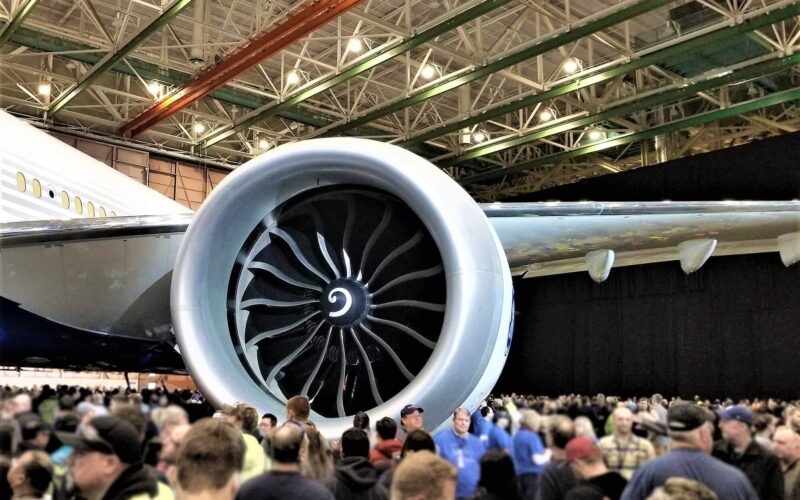Boeing has temporarily suspended 777X wide-body aircraft test flights after an unspecified issue was detected on the aircraft’s GE9X turbofan engine.
The US planemaker and engine manufacturer GE Aviation are currently investigating the issue, leading Boeing to pause its 777X flight test program.
The technical engine issue occurred during post-certification testing on October 6, 2022. A Boeing 777-9, registered N779XW, was undergoing several test flights between Seattle and Moses Lake in the United States when one of its GE9X engines failed. The engine has already completed more than 2,600 flight cycles and around 1,700 hours of run time.
The N779XW was one of four 777X jet prototypes involved in the testing process, but none of the planes have flown again since the incident.
GE Aviation has already completed a borescope engine inspection and agreed with Boeing to remove the part and send it for further investigation in GE’s test facility in Peebles, Ohio.
“During these runs, a temperature alert was observed, and the operator shut the engine down normally. […] GE is coordinating next steps with Boeing to support the resumption of flight tests,” the engine manufacturer explained in a statement to FlightGlobal on November 30, 2022.
Will the GE9X engine issues affect the Boeing 777-9 certification program?
Boeing 777X, the new generation of the 777 family, was announced in 2013, accumulating about 300 orders during the years that followed. However, after numerous problems and delays, the first prototype only conducted its first flight in January 2020.
Boeing had initially expected the 777X to be certified during the final quarter of 2023, with the first delivery before the end of that year. However, in April 2022, it announced a more realistic term. According to the manufacturer’s first quarter 2022 financial report, delivery of the first 777X jet was expected to take place in 2025.
But recently detected issues with the GE9X engine could force Boeing to adjust the already substantially delayed certification program.

